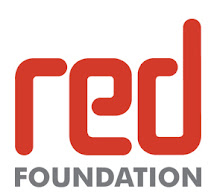When I was first asked to be a trustee, I had no idea what it meant. I gathered that, rightly or wrongly, someone was going to trust me with something but that was about as far as my understanding went. While I accepted and duly became a trustee I have to admit that it was several months before the fog cleared and I fully grasped the legal, ethical and financial responsibility I had taken on.
While this experience was many years ago now, I remain unconvinced that things have changed. How much does the person on the street really understand about trusteeship? Mention trusteeship to anyone not involved in the voluntary and community sector and you are likely to receive a blank look.
There are approximately 190,000 charities registered with the Charity Commission each of which has a board with, on average, around five trustees. A rough calculation suggests that there are around a million filled trustee positions at this time. Many other trustee positions are vacant. Additionally there are many thousands of voluntary and community organisations which are not registered as charities but which are still run by a board or management committee.
These volunteers are generally not paid for their work, they rarely take the limelight and yet they are responsible, in registered charities alone, of ensuring that £49bn of income and £78bn of investments are used appropriately, ethically and according to the letter of the law. This is a heavy burden on anyone’s shoulders.
It is not unusual for trustees not to receive formal training in relation to governance and charity law. It is not unusual for campaigns to promote and support volunteering to forget the million-strong band of volunteer trustees. It is not unusual for an organisation to invest nothing in its board as front-line work has to take priority. It is not unusual for trustees to be wholly dependent on their staff to supply legal briefings and project updates. It is not unusual for trustees to be a rubber stamp sanctioning the activities of the organisation with no real understanding or ability to effect change.
The voluntary and community sector is vast. In difficult times, it is currently struggling to support a society in financial strife. Ultimately, the responsibility for the sector is in the hands of volunteer trustees who are largely under-trained, under-supported and under-appreciated. And what do we need? More of them. We also need to broaden the range of people sitting on boards to reflect the diversity of the communities in which they work and we need them to bring a wider range of skills, experiences and understanding to support their boards and, ultimately, their charities.
I would argue that these changes are fundamental to the success of organisations and the sector as a whole. Greater understanding of trusteeship is needed so that the general public can appreciate the role and why it might be of interest to them. Existing trustees need access to support, information and advice which is free both in terms of finance and in terms of time. Crucially, this means presenting complex legal and financial information in a form which is accessible and clear to people who may not be used to reading about such things. It also means using community languages.
There is also an argument for improving our flexibility in terms of trusteeship. Gradually, there are some moves away from the (dare I say dull?) bi-monthly around-the-table trustee meetings of standard agenda, typewritten papers and dry reports. Being able to sit through a long meeting does not have to be a prerequisite for being a trustee. And yet all too often it feels like it is.
So this Volunteers’ Week, don’t forget the trustees!
Posted by Gudrun Limbrick, Associate Director of Research at Red Foundation and author of ‘One in A Million – a user-friendly guide to trusteeship’ (WordWorks ISBN 1903210194)
Subscribe to:
Post Comments (Atom)

No comments:
Post a Comment